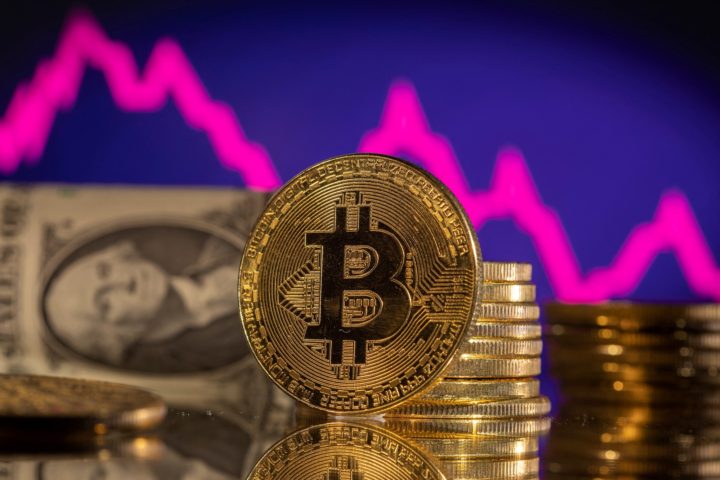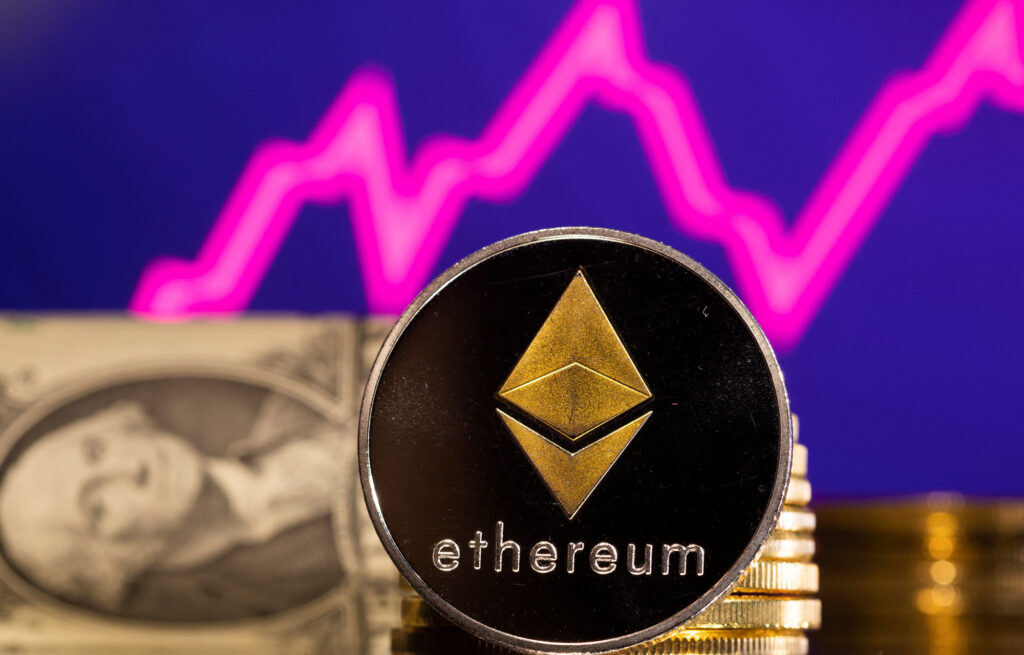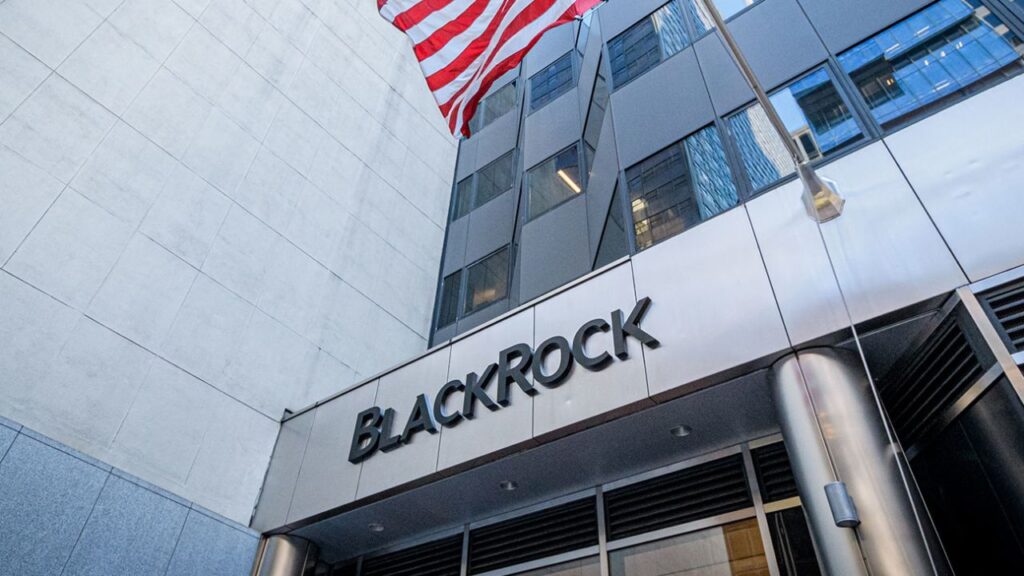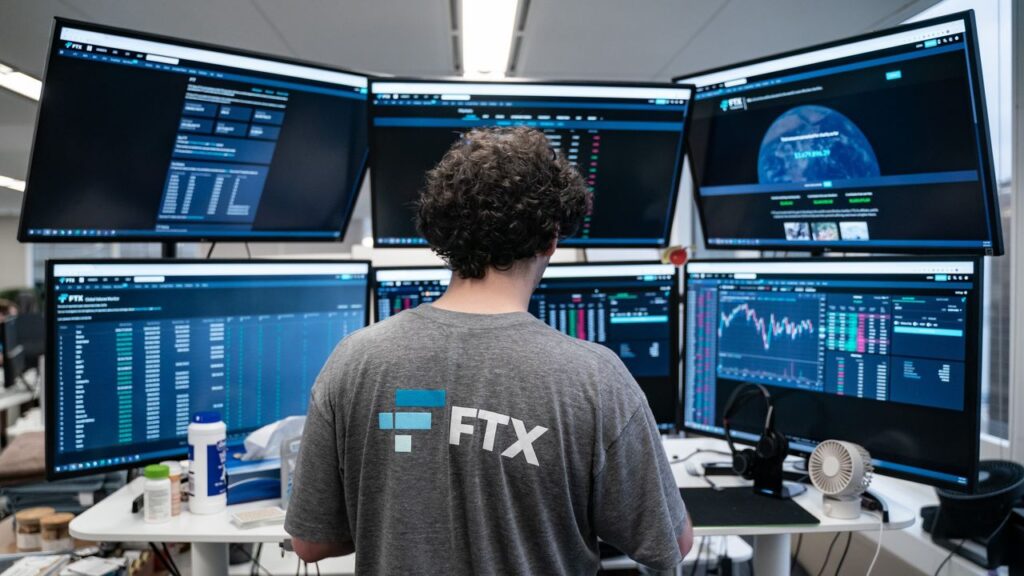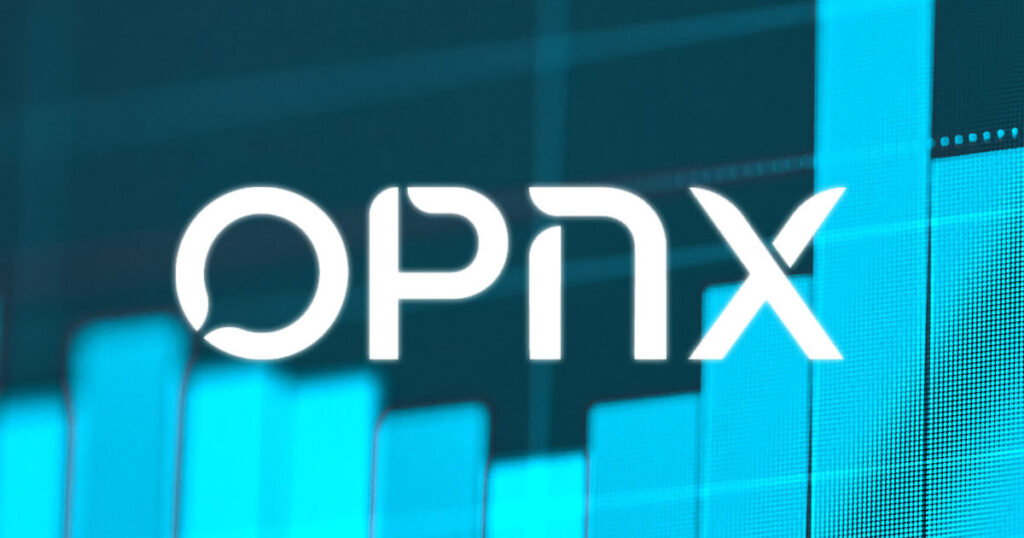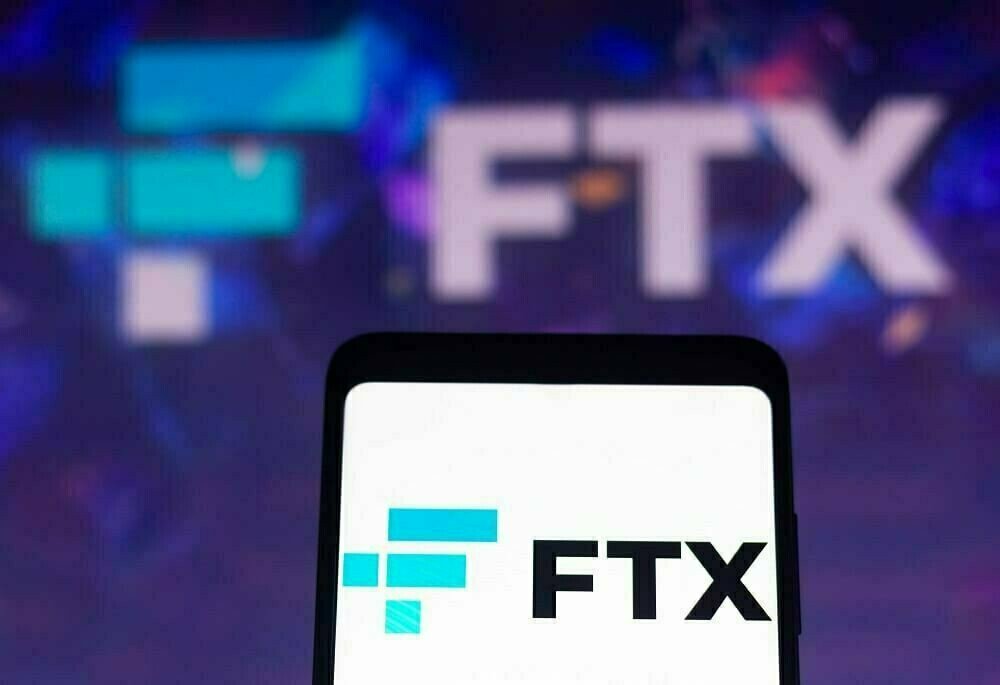ARK 21Shares has adjusted its spot Ether exchange-traded fund (ETF) application by adopting a cash-creation model, mirroring its approved spot Bitcoin ETF.
Additionally, it has proposed staking a portion of the ETF’s Ether to generate extra income.
In December 2023, ARK 21Shares and BlackRock were among the pioneers in converting their spot Bitcoin ETFs to a cash creation and redemption model after discussions with the U.S. securities regulator.
Initially, ARK 21Shares suggested an in-kind redemption model for its spot Ether ETF, which involved non-monetary payments like BTC.
Under the cash creation model, ARK 21Shares would buy Ether equivalent to the order and deposit it into the trust’s account, creating shares of the spot Ether ETF.
Bloomberg ETF analyst Eric Balchunas noted that these changes, outlined in the latest Form S-1 amendment filed on Feb. 7, align the ETF with approved spot Bitcoin ETFs.
However, the shift to a cash creation model may affect arbitrage transactions by authorized participants aimed at maintaining the share price close to Ether.
The latest S-1 filing also introduces a staking element to the spot Ether ETF. ARK 21Shares proposes staking a portion of the trust’s assets through trusted third-party staking providers, expecting to receive staking rewards as income.
READ MORE: Crypto Exchange CEO Sentenced to 7 Years for $7.5M Theft
Staking activities carry risks such as losing ETH through slashing, and staked ETH might be locked up for extended periods.
Finance lawyer Scott Johnsson mentioned that the staking-related paragraphs were in brackets, indicating openness to discussion with regulators.
Bloomberg ETF analyst James Seyffart expressed skepticism about the SEC allowing staking in spot Ether ETFs but noted uncertainties.
Seyffart adjusted the odds of spot Ether ETF approval in 2024 from 70% to 60% on Jan. 30.
The SEC must decide on several ETF applications, including VanEck’s by May 23 and ARK 21Shares by May 24.
Seyffart anticipates decisions on all applications by May 23, similar to the SEC’s approach with spot Bitcoin ETFs on Jan. 10.
Ramp Network, a leading financial technology firm specializing in connecting cryptocurrencies with the global financial system, proudly unveils its groundbreaking document-free verification system. This innovative feature is now accessible to users in Brazil, marking a significant milestone in Ramp’s mission to facilitate seamless crypto transactions worldwide.
Traditionally, purchasing cryptocurrencies often involves a cumbersome process of submitting identity documents, resulting in delays and a subpar user experience. However, Ramp revolutionizes this process by enabling eligible users in Brazil to verify their identities within seconds using only their verified national tax or ID number. This streamlined approach ensures near-instant onboarding and smooth transactions, enhancing both efficiency and security.
In Brazil, users can initiate the verification process by inputting their CPF (taxpayer registry) number and providing a selfie, which is swiftly cross-referenced with the government’s database for authentication. This seamless procedure takes mere seconds, setting a new standard for simplicity and compliance in crypto transactions.
This update aligns with Ramp’s commitment to facilitating the onboarding of millions of new users into Web3 through user-friendly on- and off-ramps. As a leading provider of fintech infrastructure in the crypto industry, Ramp supports the seamless purchase of digital assets using fiat currencies and integrates with third-party applications via a simple API.
Szymon Sypniewicz, CEO and co-founder of Ramp, emphasizes the company’s dedication to ensuring both security and efficiency in Web3 onboarding. He states, “At Ramp, we want Web3 onboarding to be not only secure but also smooth and rapid. That’s why we’ve implemented this innovative feature, reducing the verification process from minutes to seconds, and eliminating the need for cumbersome physical documents for such transactions.”
Looking ahead, Ramp plans to expand its document-free verification system to additional markets, building upon its successful launch in Brazil. This strategic move aligns seamlessly with Ramp’s support for Pix, Brazil’s leading payments gateway, popular cards, and the Brazilian real (BRL). Recognizing Brazil as a key growth market, Ramp established a local entity last year, positioning itself for further expansion and the introduction of its unprecedented convenience to other countries.
Key figures representing United States-based cryptocurrency mining have expressed concerns about an emergency survey aimed at gathering information on energy consumption and sources by operators.
Cointelegraph contacted leading mining firms operating in the country following the announcement by the U.S. Energy Information Administration (EIA) regarding a provisional, mandatory survey to gauge the electricity usage of local mining firms.
In January 2024, the Department of Energy’s statistics agency received approval for its “emergency request” to collect data.
The administration aims to develop a “baseline snapshot,” identifying electricity sources for U.S. cryptocurrency miners and pinpointing regions with concentrated mining activity.
Various mining firms and organisations representing the broader blockchain industry have raised concerns over the legality of the approach and questioned why government-run institutions are targeting the cryptocurrency mining industry.
Respondents expressed concerns about the lack of clarity regarding the reason for the emergency survey and suspicions of political motivations.
Lee Bratcher, president of the Texas Blockchain Council (TBC), criticised the “unprecedented information collection request” and highlighted the potential impact on industries relying on data centres:
“The EIA’s mandatory emergency survey of electricity consumption data represents the latest politically motivated campaign against Bitcoin mining, cryptocurrency, and U.S.-led innovation.”
Bratcher suggested that the survey is an abuse of authority aimed at furthering the Biden administration’s goal to limit or eliminate U.S.
READ MORE: Ethereum Foundation Explores Strategies to Optimize Blockchain for Rollup-Centric Roadmap
Bitcoin miners, while ignoring the industry’s use of renewable energy and operational flexibility.
Riot Blockchain echoed Bratcher’s sentiments, stating that the EIA’s request is unlawful and appears to serve a political agenda.
Brian Morgenstern, Riot’s head of public policy, labelled the survey as a politically motivated attack on Bitcoin driven by U.S. Senator Elizabeth Warren.
Commentators have questioned why the EIA has not imposed similar mandatory data collection measures on other energy-intensive industries in the U.S.
Taras Kulyk, CEO of SunnySide Digital, expressed concerns about the lack of context regarding the collection’s intent and why the digital mining sector is being singled out.
Colin Harper, head of research and content at Bitcoin mining software company Luxor, described the EIA’s move as concerning, noting the agency’s limited previous engagement with data center power use.
Cointelegraph also contacted U.S. mining firms Hut8, Core Scientific, Marathon Digital, and Foundry for their perspectives on the EIA’s energy data information survey. Iris Energy declined to comment.
The United States Securities and Exchange Commission (SEC) has implemented new regulations, effective February 6, redefining the terms “dealer” and “government securities dealer.”
Initially proposed in 2022, these regulations mandate additional crypto market participants to register, join self-regulatory organizations, and adhere to federal securities laws.
However, the crypto community, decentralized finance (DeFi) ecosystem, and pro-crypto politicians have criticized these regulations extensively.
They argue that since the regulations were first proposed, there has been a lack of clarity regarding the classification of crypto securities.
The primary point of contention lies in the definition of a dealer, potentially necessitating liquidity providers to register as securities dealers.
Consequently, any liquidity provider controlling over $50 million in capital would be obligated to register with the SEC.
SEC Commissioner Hester Pierce expressed her dissent in an official statement, citing the inconsistency of the dealer definition with the statutory framework and its adverse effects on market behavior and quality.
She emphasized that these regulations not only harm liquidity providers but also penalize liquidity provision, leading to a reduction in overall market liquidity.
READ MORE: South Korean Prosecutors Arrest Haru Invest Executives in $830 Million Crypto Theft Scandal
Various figures within the DeFi sector and crypto domain have echoed concerns over these regulations on social media.
Gabriel Shapiro, general counsel at Delphi Labs, highlighted uncertainties surrounding the dealer registration requirements and their impact on liquidity providers.
According to Shapiro, not all liquidity providers with $50 million assets under management qualify as securities dealers.
The determination depends on whether the tokens in the pool or the trades facilitated through the pool are classified as securities.
Bill Hughes, senior counsel and director of global regulatory matters at Consensys, stressed the importance of clarity regarding the classification of crypto assets under U.S. law.
He anticipates legal challenges to the new rules, emphasizing the significant impact they have on the securities markets.
Moreover, the SEC’s reluctance to provide clear crypto regulations despite persistent demands from the community and policymakers has drawn criticism.
Ripple, Grayscale, and Coinbase have all challenged the SEC’s actions in court, indicating a broader pushback against regulatory ambiguity.
Experts suggest that the recent regulations targeting liquidity providers may also face judicial scrutiny in the future.
BlackRock’s iShares Bitcoin Trust exchange-traded fund (ETF) has swiftly ascended into the upper echelon of U.S.-issued ETF products, ranking in the top 0.16%.
As of February 5th, the ETF has attracted over $3.19 billion in inflows, trailing only behind broad index funds tracking the S&P 500 and Vanguard’s Total Stock Market ETF, as reported by Eric Balchunas, a senior ETF analyst at Bloomberg.
Remarkably, within just 17 days since its inception, $IBIT has surged into the Top 5 in year-to-date flows, surpassing 99.98% of other ETFs.
Comparing against the 3,109 ETFs presently trading in the United States, BlackRock’s ETF stands out, placing in the top 0.16% in terms of flows.
Balchunas offers a slightly different assessment, suggesting a 0.02% position when measured against an estimated 10,000 ETFs globally.
Fidelity’s Bitcoin Fund follows closely behind, securing the eighth spot among U.S.-based ETF products with $2.51 billion in inflows.
Both BlackRock and Fidelity’s Bitcoin ETFs have steadily climbed the ranks, advancing from eighth and tenth positions at the end of January.
READ MORE: ‘Very Few Speak of the Crypto Winter, Bitcoin is Rising in 2024’ – Serhii Tron on Crypto Investments
Notably, the approval of spot Bitcoin ETF products for trading on January 11th puts them at a seven-day trading disadvantage compared to other products whose flows are tallied from January 1st.
BitMEX Research data highlights the widening gap between BlackRock and Fidelity’s spot Bitcoin ETFs against seven other spot Bitcoin ETFs (excluding Grayscale) in terms of inflows.
ARK 21Shares and Bitwise secure third and fourth positions respectively, with over $100 million in accumulated flows each.
Meanwhile, Grayscale’s converted spot Bitcoin ETF, the Grayscale Bitcoin Trust (GBTC), saw a decline in outflows for the sixth consecutive day, recording $73 million on February 6th.
Notably, inflows from other Bitcoin ETF issuers have consistently outpaced outflows from Grayscale’s GBTC for at least seven consecutive days, marking a significant shift in investor sentiment.
The latest outflow figure represents an 88% decrease from GBTC’s peak outflow day on January 22nd, signaling a changing landscape in the Bitcoin ETF market.
Crypto wallets associated with the now-defunct FTX exchange and its sister company, Alameda Research, have been active in transferring substantial digital assets totaling over $38.8 million to various cryptocurrency exchanges since January 2024, according to data from blockchain analytics firm PeckShield.
In February, these wallets were particularly active, with transfers totaling at least $7 million.
On February 4th, approximately $2.6 million in Ether was sent to Coinbase, and around $1.1 million in Ton (TON) and Fantom was transferred to FalconX and Wintermute.
On February 6th, the wallet addresses moved a minimum of $3.3 million in various assets to Coinbase, Coinbase Prime, FalconX, and Binance.
In January, these same crypto wallets linked to FTX and Alameda initiated transfers of at least $35 million to exchanges. On January 4th, they transferred $4.1 million in Cronos to Coinbase.
Shortly after, another $2.4 million in ETH was sent to Coinbase, followed by a transfer of 200 Wrapped BTC (WBTC) valued at $9 million to Binance on January 9th.
READ MORE; Genesis Global Capital Seeks Court Approval to Liquidate $1.6 Billion in Crypto Trust Shares
Later in January, FTX and Alameda continued their transfers, moving an additional $16.3 million to various exchanges.
On January 17th, addresses connected to these organizations sent $8.9 million in Tether Gold (XAUT) to Coinbase and $2.6 million in ETH to Wintermute.
Towards the end of the month, on January 30th, they transferred $2.3 million in ETH to Coinbase, $1.3 million in various altcoins to Binance, and a $1.28 million sum to GSR Markets.
These transactions unfolded against the backdrop of FTX exchange’s ongoing restructuring efforts and its commitment to fully reimburse its customers.
In a U.S. court hearing on January 31st, the exchange announced its intention to focus on repaying customers but emphasized that this objective was not guaranteed, raising concerns and skepticism among critics.
Following the hearing, criticism escalated, with former United States Securities and Exchange Commission official John Reed Stark describing the restructuring plan as a “highway robbery of highway robbers” on February 4th.
The plan’s perceived prioritization of legal team profits sparked further controversy within the cryptocurrency community.
Kyle Davies and Su Zhu’s Open Exchange (OPNX) is set to shutter its operations on February 14, according to an email notification sent to users on February 1, as reported by Cointelegraph.
The cessation of trading activity will commence on February 7, with users still able to withdraw funds until the final closure date.
Intriguingly, a new exchange named OX.Fun has emerged seemingly to fill the void left by OPNX.
OX.Fun employs OPNX’s native token, Open Exchange Token (OX), as collateral for derivative trading.
It has garnered attention within OPNX’s official Telegram channel, although the identity of the individuals or entities running OX.Fun and their connection to OPNX remain unclear.
OPNX, launched in April 2023 by Davies and Zhu, former co-founders of the defunct cryptocurrency hedge fund Three Arrows Capital (3AC), also included Mark Lamb and Sudhu Arumugam, co-founders of the bankrupt crypto exchange CoinFLEX, among its creators.
Initially, OPNX was positioned as a reboot of CoinFLEX. However, subsequent legal disputes with CoinFLEX creditors led OPNX to assert that the two entities were entirely separate.
Zhu’s arrest for violating a committal order related to 3AC’s bankruptcy proceedings, with a similar order issued against Davies, added to the turmoil. Zhu was subsequently released after a three-month detention.
OPNX achieved some level of success in 2023, with daily spot trading volumes peaking at $32,000 and derivatives trading reaching $82 million by November.
However, at the time of its closure announcement, spot trading had dwindled to $23, and derivatives trading to $1.2 million.
Despite the discontinuation of OPNX, its token, OX, continues to be traded on various decentralized and centralized exchanges, maintaining a Telegram community of over 3,000 members.
OX.Fun has been actively promoted to the existing OPNX community, but many users are perplexed about the relationship between the two platforms.
OX.Fun briefly saw impressive trading volumes, with derivatives reaching nearly $39 million on January 30, although it subsequently dropped to $8 million the next day, still surpassing OPNX’s volumes.
READ MORE: FTX Seeks Court Approval to Sell Anthropic Stake Amidst Bankruptcy
The user interface of OX.Fun bears resemblance to decentralized derivatives protocols like GMX, dYdX, and Level Finance, featuring the familiar “Connect wallet” button for linking user wallets to the platform.
However, unlike decentralized protocols, OX.Fun’s deposit page lacks a button for in-wallet transactions, requiring users to manually send funds to an external deposit address.
This setup suggests that OX.Fun operates as a centralized, custodial futures trading platform, where deposits are likely directed to an exchange hot wallet account.
Additionally, OX tokens experience high slippage, exceeding 50%, making it challenging for users who do not hold OX to utilize the platform.
Despite these developments, key information about OX.Fun’s executives and corporate registration remains elusive.
Attempts to reach out to the platform’s team via Telegram and the official website’s customer support yielded no responses.
Users seeking clarity on the connection between OPNX and OX.Fun, as well as information about the project’s leadership and investors, have also encountered unanswered queries.
Despite the lack of transparency surrounding OX.Fun’s operators, the platform continues to process deposits and withdrawals as expected.
On February 1, FTX made a significant move by filing a motion in a Delaware court, seeking approval to sell its claim of $175 million against the bankrupt digital financial services firm, Genesis Global Capital.
This claim was initially asserted by Alameda Research, a hedge fund affiliated with the now-bankrupt cryptocurrency exchange, FTX.
FTX is exploring the option of selling the claim, either in its entirety or in parts, and at various times, in order to maximize its returns.
Currently, claims against Genesis are trading at 65% of their face value, a significantly higher price compared to the 38% that Alameda Research’s claims are fetching.
The motion submitted to the court requests approval of a sales procedure that would apply to all sales, streamlining the process and minimizing the need for separate motions for each proposed sale.
According to this procedure, the sale price must be at least 95% of the highest price quoted by leading market-makers for general unsecured claims of GGC on a reference date within three days of the sale date.
The proposed sale order emphasizes that this action is in the best interests of the Debtors, their estates, creditors, interest holders, and all other parties involved.
Interested parties have until February 15 to voice any objections to the sale of the claim.
It’s worth noting that FTX had initially sought to recover $3.9 billion from Genesis in May 2023, as permitted by bankruptcy law.
READ MORE: Tether Holdings Reports Remarkable Q4 2023 Profit of $2.85 Billion
However, the negotiated claim of $175 million was reached between FTX and Genesis in August 2023 and was subsequently approved by the court in October. During that time, other claims FTX had against Genesis were nullified.
The decision to settle for a significantly lower sum was based on the argument that the potential for recoveries was unpredictable, and opting for a settlement allowed both parties to avoid protracted and costly litigation, the outcome of which would also have been uncertain.
FTX faced a crisis in November 2022 when irregularities were discovered in its account books. At that time, Genesis had $175 million tied up in its FTX account, although Genesis asserted that this did not impact its market-making activities.
Genesis Global Capital, a subsidiary of the Digital Currency Group, filed for bankruptcy in January 2023, leading to an extended dispute with the Gemini cryptocurrency exchange.
Genesis had been managing the Gemini Earn program, which was affected when Genesis suspended withdrawals.
Recently, on February 1, Genesis reached a $21 million settlement with the United States Securities and Exchange Commission (SEC) regarding the Gemini Earn program.
A court hearing scheduled for February 14 in New York will evaluate Genesis debtors’ proposed bankruptcy reorganization plan and the inclusion of the SEC settlement within it.
Bitcoin has been trapped in a relatively narrow price corridor for approximately 150 days, ranging from $40,000 to $44,999 as of February 2, 2024.
This unyielding price range has frustrated both bullish and bearish investors.
However, a recent analysis by James Van Straten, a research and data analyst at CryptoSlate, suggests that this behavior is not unusual for Bitcoin.
Van Straten’s examination of Bitcoin’s historical price movements in $10,000 increments between $10,000 and $49,999 reveals that the cryptocurrency typically spends anywhere from 100 to 250 days within these ranges.
Therefore, the current sideways movement falls in line with Bitcoin’s historical trading patterns and should be viewed as characteristic behavior rather than an anomaly.
Despite Bitcoin reaching two-year highs in 2024, as well as experiencing lows of $38,500, these price extremes have failed to trigger a sustained price trend.
Instead, BTC/USD has remained within the $5,000-wide trading range.
This behavior has persisted even after the introduction of spot Bitcoin exchange-traded funds (ETFs), much to the disappointment of market commentators.
Looking ahead, the upcoming block subsidy halving event, scheduled to occur in just over two months, has shifted market sentiment towards a belief that Bitcoin will only regain bullish momentum several months after the halving event.
READ MORE: Tech Titans Microsoft and Alphabet Soar in Q4 with AI and Cloud Advancements
Until then, it is expected that the familiar price levels will continue to define the cryptocurrency landscape.
One of the respected voices in the crypto community, Michaël van de Poppe, founder and CEO of MN Trading, maintains a consistent outlook on Bitcoin’s trajectory.
He anticipates a range-bound trend with Bitcoin trading between $38,000 and $48,000, a prediction he has held for approximately two months.
Van de Poppe also suggests the possibility of a short-term correction followed by a mild pre-halving rally, pushing Bitcoin’s price to around $48,000.
In conclusion, Bitcoin’s extended period of trading within a $5,000 price range may be testing the patience of investors, but it aligns with historical patterns.
With the block subsidy halving event looming on the horizon, market participants are bracing for a continuation of this range-bound behavior until a more substantial bullish trend takes hold in the months to come.
Gate.io, a prominent cryptocurrency exchange and Web3 pioneer, has unveiled a groundbreaking collaboration with D3 Global, an advanced domain name company specializing in interoperable digital identities. Together, they intend to seek and secure the coveted ‘.gate’ Top-Level Domain (TLD) during ICANN’s upcoming application window. This strategic move positions Gate.io as the first cryptocurrency exchange to express interest in acquiring its dedicated TLD.
Top-Level Domains (TLDs) represent the final segment of website addresses, an integral part of the Internet’s Domain Name System (DNS). Well-known TLDs like “.com” and “.org” are seamlessly compatible with standard web browsers. Conversely, decentralized blockchain-based systems employing extensions such as “.eth” and “.crypto” operate independently and do not integrate with the conventional DNS infrastructure.
Web3 naming systems currently in existence suffer from incompatibility issues with traditional Internet infrastructure, leading to significant challenges, including functionality limitations, brand confusion, and security vulnerabilities. D3’s innovative platform, protected by a patent-pending technology, aims to bridge the gap between the traditional Internet and the Web3 ecosystem. Their mission is to provide enhanced utility, security, and universal access, thereby ushering in what they term ‘real Web3 domains.’
If the application for the ‘.gate’ TLD in partnership with D3 is approved, Gate.io users will have the unique ability to establish personalized web addresses that are inherently compatible with both Web2 and Web3 systems. This means a single address can serve as a digital identity across Web2 browsers, email services, as well as blockchain wallets and other Web3 tools.
Through this collaboration, Gate.io solidifies its reputation as an industry innovator. Together with D3, the companies plan to create futureproof, interoperable digital identities that combine the strengths of the existing Internet with the emerging Web3 technologies.
Dr. Lin Han, Founder and CEO of Gate.io, expressed their commitment to innovation, stating, “We are constantly developing innovative new solutions for our growing ecosystem. Our partnership with D3 will allow us to offer exciting identity solutions that enhance their trading experience and opens the Gate.io ecosystem up to billions of Internet users worldwide, while maintaining the safe and secure environment our users have grown accustomed to.”
Fred Hsu, CEO of D3, conveyed his excitement about welcoming Gate.io on their journey to make Web3 more accessible, scalable, and secure with straightforward, interoperable digital identities built on the DNS. He emphasized, “This partnership will enable us to offer our unique identity solutions to over 13 million Gate.io users worldwide, giving them access to innovative solutions that will enhance their journey across Web3.”
Through their collaborative efforts, Gate.io and D3 aspire to provide a groundbreaking solution to the interoperability challenges that currently exist between Web3 and Web2. D3’s pioneering platform, backed by a patent-pending approach, seamlessly integrates traditional Internet and Web3 ecosystems, promising enhanced utility, security, and universal access for millions of users.

